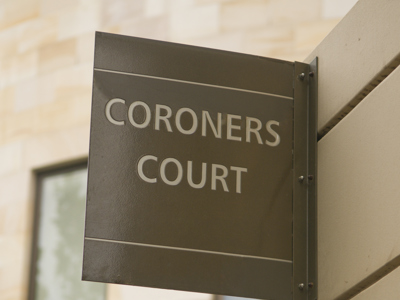
Failure to spot bowel obstruction left woman with multi-organ failure in intensive care
A bowel obstruction that was mistakenly diagnosed as constipation left a woman needing emergency surgery and four weeks on the intensive therapy unit (ITU) at the Defendant Hospital.
Posted on 28 April 2023
Doctors failed to notice that the 53-year-old patient, who we have called Lindsay, had previously had surgery to remove a fallopian tube which resulted in an adhesion in her bowel. Small bowel loops were not identified on a x-ray and a bowel obstruction was not diagnosed, resulting in the need for emergency surgery five days later.
On Lindsay’s behalf, Leigh Day medical negligence lawyers settled a claim with the Defendant Trust. They argued that if Lindsay’s bowel obstruction had been diagnosed sooner, she would have had surgery (a laparotomy) which would have avoided the development of ischaemic bowel, the need for bowel resection, gastric aspiration, admission to ITU and multi-organ failure.
Lindsay woke on 15 July 2017 with excruciating abdominal pain and nausea. When it persisted into the afternoon, her daughter took her to the A&E department at the Defendant Hospital where she had an x-ray and was told she had constipation. She was prescribed a laxative and sent home.
For the following two days Lindsay was still in constant pain. She did not eat, vomit or open her bowels.
On 18 July the pain was still so severe that Lindsay’s mother called a GP who arranged admission to the Surgical Assessment Unit at the Defendant Hospital. The working diagnosis was still constipation and Lindsay was prescribed fluids. There was no record of either Lindsay’s medical history or the recent x-ray being reviewed.
In the early hours of 19 July Lindsay vomited and a report of a CT scan performed later that morning identified the small bowel loops, the suggestion of adhesions and a high risk of perforation. It was noted that Lindsay urgently needed a laparotomy, ideally that day.
However, by 11.15pm two other acute cases needed to be treated and Lindsay’s surgery was delayed until 4pm the following day, 20 July.
During the operation Lindsay began to suffocate when gastric fluid entered her lungs (aspiration). Staff on the surgical special care unit were asked to call an anaesthetist if Lindsay began to experience breathing difficulties while she was in recovery.
Lindsay did develop worsening respiratory failure, a fast heart rate and poor kidney function and the following morning, 21 July, antibiotic treatment began. However, an hour later a critical care review diagnosed multi-organ failure caused by the aspiration and Lindsay was transferred to the intensive care unit.
She remained in intensive care until 23 August and was only discharged from hospital on 1 September.
Since her treatment Lindsay has suffered with bowel urgency and incontinence, as well as pain and impaction. She suffers urinary incontinence. She has suffered psychologically, including panic attacks and exacerbation of depression. She has decided against reconstructive breast surgery following breast cancer treatment due to fear of the surgery.
Lindsay has noticed changes in her hearing and voice and her memory has deteriorated since her stay in ITU.
As a result of her injuries, Lindsay has had to semi-retire from her employment a lot earlier than she would otherwise have done so.
Leigh Day medical negligence solicitor Stephen Clarkson argued that to discharge Lindsay from hospital on 15 July with a diagnosis of constipation was a breach of duty. Lindsay’s gynaecological history and the loops of prominent small bowel that were visible on the x-ray should have been considered. When Lindsay returned to hospital on 18 July the x-ray should have been reviewed and the small bowel loops should have been spotted and it should have been recognised that absolute constipation for five days indicated intestinal obstruction.
Without these failures, Stephen said the likelihood is that Lindsay would have had surgery much sooner and the complications of delayed surgery would not have resulted.
The case was settled with the Defendant Trust in November 2022.
Lindsay said:
“As a result of my delay in diagnosis, I had to endure an emergency surgery, followed by a long and complicated ITU stay, during which time I suffered gastric aspiration, respiratory failure, deterioration in kidney function, bowel resection and multi-organ failure. The quality of my life has greatly deteriorated as a result of this oversight: to this day I suffer with bowel urgency and incontinence, panic attacks, depression and chronic fatigue, a result of which I have had to semi-retire from my job as an Intensive Care Neonatal nurse.
"Leigh Day has been knowledgeable, resourceful and supportive throughout the ordeal of my case and made me feel reassured at every step: I am so grateful to Stephen and Megs for the professionalism and care that was shown to me during this time. To reach such a successful resolution after six years has brought me a great sense of relief and I feel that I am finally able to look to the future having drawn a line under such a traumatic period of my life”.
Leigh Day medical negligence solicitor Stephen Clarkson said:
“The injuries that Lindsay has suffered have had a profound impact on her life, both psychologically and physically. They have also impacted on her career. The initial mistaken diagnosis of constipation was not challenged or queried by subsequent doctors until it was too late, by which point Lindsay’s situation had become very serious and resulted in her losing some of her bowel and enduring a long stay in ITU. I am pleased that we have been able to secure a settlement for Lindsay which compensates her for the financial losses that she has suffered, as well as the pain and suffering that she has been through as a result of the negligence.”




